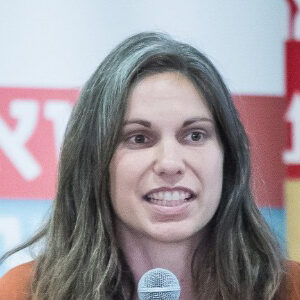Adi Mohel, founder of the Migrash Mishela (Her Own Playing Field) Project, has an Masters in International Community Development from the Hebrew University. She is a group facilitator and a graduate of the basketball coaching course at the Wingate Institute. Adi develops programs, facilitates teams and research on gender and sport in collaboration with organizations such as Athena, the Ministry of Sport, the Football Association and the Volleyball Association. She is a basketball player in the Second League and an amateur illustrator.
As a child, Adi began working to set up girls’ teams in her hometown after being unable to find a basketball team near her home in which she could play. It was there that she was first exposed to the prevailing stigmas regarding women in sports. In later years, she became a facilitator in the Education Department at the Tel Aviv Sexual Assault Crisis Center, and she set up a program aimed at empowering girls through sports in the Arachim Basport (Values in Sports) NGO.
Realizing there was an increasing need for professional and practical knowledge about women in sports (which is currently absent from institutional courses and workshops), in 2021 she established the Migrash Mishela platform. Migrash Mishela works to make research and practical knowledge on girls and women in sports more easily accessible, and to stimulate a conversation and awareness of this issue. Increasing awareness of the obstructions and needs of girls and women in sports helps allow for the creation of a safe space for female athletes, where they can realize their potential and where they can develop their ability to enjoy the physical, social and mental advantages to be gained from engaging in physical activity and sports.
The Migrash Mishela presents information that links practice with academic knowledge, provides tips from the field for coaches, and highlights work in Israel on the topic of gender and sports. It also has a podcast addressing sports and gender-related issues – girls’ interest in sports, gender segregation, body self-image, the intersection of sports, gender, ethnicity and more.
Besides this, as part of the project, Adi is developing additional programs for advancing female leadership and gender knowledge in sports, and she facilitates process-based workshops for young coaches and female athletes. A chapter she has written about the unique perspective female athletes bring with them to the sports world will be published shortly in the Routledge Handbook on Sports, Gender and Politics.

